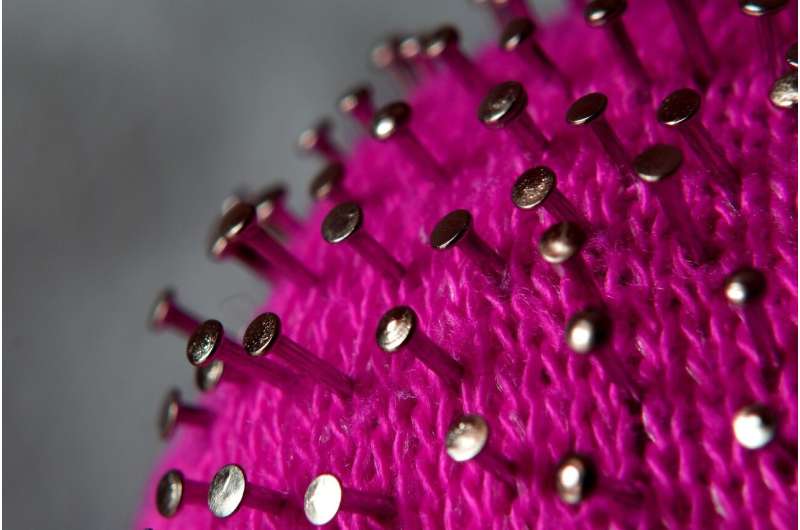Credit: CC0 Public Domain
A team of data scientists, physicians, and engineers across the Mount Sinai Health System has come together to launch STOP COVID NYC, a web-based app to capture the symptoms and spread of COVID-19 in New York City—currently the epicenter of the nation's largest outbreak. The group is seeking citywide participation to survey the spread of COVID-19 and enhance medical response to the pandemic.
The web app, now available by texting "COVID" to 64722, allows all Mount Sinai patients and city residents to enroll in the tool to monitor their symptoms. Users complete an initial survey with questions about demographics, exposure, and symptom history, followed by short daily surveys about their symptoms through text messages sent to their phones.
"The new web app will track the spread of the virus throughout our New York City community, helping medical professionals and government officials to provide appropriate responses to deal with the crisis," said Laura Huckins, Ph.D., Assistant Professor of Genetics and Genomic Sciences, and Psychiatry, at the Icahn School of Medicine at Mount Sinai, and a leader of this project. "To do this well, we need our whole city to help, not just those in hospitals or with access to health care. Everyone is included, and everyone can help. Capturing citywide coronavirus data from residents before, during, and after they become ill could help to reduce the pressure on medical resources and contribute to slowing the spread."
Laura Huckins, PhD, describes Mount Sinai's STOP COVID NYC program. Credit: Mount Sinai Healthcare System
Data collected from the survey could alert health care providers about growing clusters of outbreaks in specific communities across the five boroughs, helping to better allocate resources for rising numbers of patients. In broader global and public health efforts, the results from the exposure surveys could guide long-term research about factors affecting the spread of the virus and jumpstart enrollment for future clinical trials and studies for treatments.
"Most data used to guide clinical decisions for COVID-19 have been generated in China, but with New York City among the cities with the largest number of cases—a number that continues to grow—we see a critical and urgent need to understand more about the clinical course of the disease," said Girish Nadkarni, MD, a team lead, Clinical Director of the Hasso Plattner Institute for Digital Health, faculty member in the Charles Bronfman Institute of Personalized Medicine, and Assistant Professor of Medicine (Nephrology) at the Icahn School of Medicine at Mount Sinai. "This is a unique opportunity to collect data in a diverse population during an outbreak surge, which could provide powerful predictions of the clinical outcomes of our most vulnerable patients."
The systemwide effort to develop the app includes expertise from several medical disciplines, including the Departments of Genetics and Genomic Sciences, Environmental Medicine and Public Health, Medicine, Pathology, and Radiology, plus the Mount Sinai App Lab, the Hasso Plattner Institute for Digital Health, the Icahn Institute for Data Science and Genomic Technology, The Charles Bronfman Institute for Personalized Medicine, the Mount Sinai Data Office, and the Biomedical Engineering and Imaging Institute at the Icahn School of Medicine. Early developments of some of this work were a result of collaborations with Charite University Hospital in Berlin and Data4Life gGmbH. This project was made possible due to software and technical support from Mount Sinai spinout Rx.Health, whose platform makes it easy to prescribe digital medicine to patients.
Paul O'Reilly, Ph.D., a team lead and Associate Professor of Genetics and Genomic Sciences at the Icahn School of Medicine at Mount Sinai, said all residents of New York City are encouraged to use the self-reporting app. "A really important aim of our survey is for the entire community to participate and share what they are experiencing in real time, so we can understand how the virus is affecting everyone," Dr. O'Reilly said. "We want feedback from as many people as possible, including those who are healthy and sick, young and old. This is a survey about New Yorkers, for New Yorkers."
Provided by The Mount Sinai Hospital























